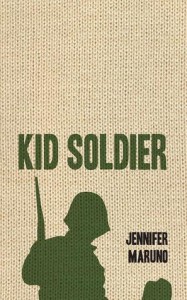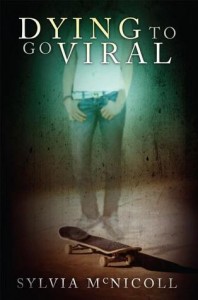Initiation by Virginia Frances Schwartz
 Summary: Living in the mid 1400s, Nanolatch and Nana are the long heralded “Salmon Twins” born to the Kwakiutl tribe. As they approach the time of their initiations when they will take their places as adults, the tribe is thrown into upheaval when a rival tribe offends the Salmon men through over fishing. A war is begun, and the spoils of the attack include Noh, an apprentice shaman from the other community. Her presence affects the lives of both of the twins, and as she comes to love them both in different ways, Noh finds herself knowing the future but being unable to stop it. The trials of growing up drive a wedge between the twins as their genders lead them down different paths, but as the chief’s children their fates are closely tied to the fate of the tribe. When the salmon stops running, it is up to Nanolatch and Nana to bring them back.
Summary: Living in the mid 1400s, Nanolatch and Nana are the long heralded “Salmon Twins” born to the Kwakiutl tribe. As they approach the time of their initiations when they will take their places as adults, the tribe is thrown into upheaval when a rival tribe offends the Salmon men through over fishing. A war is begun, and the spoils of the attack include Noh, an apprentice shaman from the other community. Her presence affects the lives of both of the twins, and as she comes to love them both in different ways, Noh finds herself knowing the future but being unable to stop it. The trials of growing up drive a wedge between the twins as their genders lead them down different paths, but as the chief’s children their fates are closely tied to the fate of the tribe. When the salmon stops running, it is up to Nanolatch and Nana to bring them back.
Number of Pages: 268
Age Range: 13-18
Review: It took me some time to get into Initiation by Virginia Frances Schwartz, but once I did, it was an arresting read. Schwartz weaves her story through three characters: twins Nanolatch and Nana and Noh, a captive from another tribe. Noh is a shaman in training and had dreams that she would one day become connected with the twins, but the circumstances under which that connection comes about are painful, because they involve an ill-conceived war and many deaths.
Schwartz’s story-telling style is unique, because although Noh wasn’t exactly a main character, her point-of-view adds quite a bit to the tale through her visions and the willingness of others to tell her things.
Of the three stories that unfolded, I was intrigued most by Nana’s struggle against her environment. Born as a twin, her sense of equality is stripped by the fact that she was born a girl and her twin, Nanolatch, is a boy. Both genders have prescribed roles within the tribe, with little leeway for crossover. Though Nana knows she is meant for something more, perhaps fishing or being a warrior, she is restrained by her female body, and her father’s insistence that she learn how to weave.
Her one saving grace is her position as a Salmon twin because her tribe believes she and her brother will be able to call the salmon in the spring. This gives Nana a chance every year to be by the water, and every year she begs her father to leave her there. The matter isn’t helped by Nana’s belief that she has no place in her father’s heart, an untruth only revealed too late to save her.
I set the age range at 13 to 18 because I believe different levels of readers will be interested in different parts of the story. There’s enough depth and layers in it for older teen readers, but I think younger teen readers would enjoy it as a surface-type read about Native life and myths. Schwartz herself states in her Author’s Note that the book was inspired by a Kwakiutl transformation myth and she takes this simple myth to another level through her poetic imagining of the Salmon twins.
Memorable Quotes:
“Cries heave from my gut. I no longer know who I am with this pain, never felt before, burning through me. Never imagined that one, whose eyes I have looked into since I was born, is not here anymore. Those deep brown eyes knew me best. He saw each layer of my soul, naming places I had no words for.
Grandmother insists First Uncle is everywhere. But I can’t find him. When the smoke died down, when his ashes lifted to the wind, he was gone.” – Nanolatch from Initiation by Virginia Frances Schwartz, page 58
“The body is just a cloak, Grandmothers says. Only the soul gives it life.” – Nana from Initiation by Virginia Frances Schwartz, pages 62-63
“And then I sleep. The dreamworld closes its arms around me, pulling me out where I cannot go in this world – with this body.” – Nana from Initiation by Virginia Frances Schwartz, page 124
“To be female in this village is to be a slave to men’s demands. It is to have our spirits slashed before they have begun to soar.” – Nana from Initiation by Virginia Frances Schwartz, page 172
“The First Nations people believe that the salmon are messengers who predict our future. What happens to them affects us all. The salmon, which have migrated up rivers for thousands of years, are rapidly disappearing. Commercial logging, the building of dams, industrial pollution, urbanization, and commercial overfishing have together endangered the migrating salmon. To me, this transformation myth is a plea for a return to balances and conservation before it is too late. We must all find ways to perform U’mista – to give back what belongs to this earth so that it will remain with us always in our oceans, wildlife, the forests, and the air.” – Virginia Frances Schwartz in her Author’s Note from Initiation by Virginia Frances Schwartz, page 166
Initiation by Virginia Frances Schwartz is published by Fitzhenry & Whiteside, (2003).
Kid Soldier by Jennifer Maruno
 Summary: Richard Fuller is a fifteen year-old with a taste for adventure and an ambitious spirit. Also loyal and trustworthy, Richard works at various jobs making friends everywhere he goes until the local baker suggests he train to be a signaller at a summer training camp for soldiers. Certain this is the key to achieving his dreams of seeing the world, Richard enlists when World War II starts, using his library card for identification though he is too young. But the rigours of war are not what he imagined, and though it puts him in touch with long-lost relatives in England, Richard eventually realises home might just be the best place for him after all.
Summary: Richard Fuller is a fifteen year-old with a taste for adventure and an ambitious spirit. Also loyal and trustworthy, Richard works at various jobs making friends everywhere he goes until the local baker suggests he train to be a signaller at a summer training camp for soldiers. Certain this is the key to achieving his dreams of seeing the world, Richard enlists when World War II starts, using his library card for identification though he is too young. But the rigours of war are not what he imagined, and though it puts him in touch with long-lost relatives in England, Richard eventually realises home might just be the best place for him after all.
Number of Pages: 198
Age Range: 13-14
Review: I quite enjoyed Jennifer Maruno’s Kid Soldier. Richard Fuller begins the book as a young fifteen year-old, but quickly matures as he takes on new responsibilities in his efforts to raise enough money to buy a bike. Each new job opens up new opportunities though, and Richard finds himself training to be a signaller which should allow him to travel the world on ships.
But then World War II starts, and Richard uses his training to enlist early. It strains his relationship with his mother, but strengthens his connection to Mr. Black, who has become a surrogate father to Richard in the absence of his own. Richard is a responsible soldier and diligent worker, but he comes to realise maybe he doesn’t have to travel so far to get what he really wants: land to cultivate and a family of his own.
It took me a while to understand the whole sock sub plot. I understood Amy was sending Richard socks and that the first pair was lost at sea but then she kept labelling the packages ‘Socks’ and they never arrived. It wasn’t until the end when she labelled them differently (and humourously) that I realised the socks were repeatedly being stolen by soldiers in need. And then I realised the cover’s background is meant to be a knitted sock as well. I liked it, especially Amy’s wild colour choices.
Though Maruno’s story leaves the reader at a certain point in Richard’s life, it is easy to imagine how his future might develop. I cared about him as a character, and loved how he understood Amy and appreciated her literal sense of humour. It was bit of a subtle romance, but it was sweet. I also loved his older brother-type relationship with Tommy, because he set a good example for him at all times, even when he was overseas.
I look forward to reading more of Maruno’s work.
Memorable Quotes:
“‘It’s a privilege to be able to serve my country,’ Richard said in a loud, arrogant voice.
His mother leaned against the porcelain lip of the sink and folded her arms. ‘Is it a privilege to sleep in a tent, use an outhouse, and eat meals off a tin tray?’ she asked. ‘And is it a privilege to get shot?'” – Conversation between Richard and his mother from Kid Soldier by Jennifer Maruno, page 55
“Richard looked up at the battalions of stars that revealed themselves in the night sky. The total blackness didn’t bother him. He didn’t miss traffic signals, or the neon signs of Niagara Falls. His home town was nothing but noise, movement, and excitement. Richard thought about the quietness of the farms along the Niagara River until the hardness of the ground on his bottom made him get up. He left wondering if the stones would still be standing after the war.” – Richard from Kid Soldier by Jennifer Maruno, page 148
“Richard passed a long row of brick houses, but they weren’t houses anymore. The hunk of mortar missing from the end of the row looked as if someone had taken a giant bite. When he turned the corner he faced an endless mass of rubble, brick, smouldering timber, and broken chimney pots. The smell of dust and powdered brickwork still hung in the air.
Across the street, he could see the morning sunlight filtering through the backs of the destroyed houses. Like Amy’s old doll house, the entire front wall was gone. Curtains flapped in the breeze, crooked pictures hung on the wallpapered walls, and a ceiling light swung in the breeze. It was the staircases that bothered him most. So many sets of stairs going to open sky.
At the sound of crunching glass, Richard looked at his feet. Millions of fine slivers of glass coated the road.
A woman across the road held her coat over her arms, staring up at the place where she most likely used to live. Gazing at the shrapnel-splattered walls, Richard tried to imagine what it would be like if his home town had been bombed.” – Richard from Kid Soldier by Jennifer Maruno, pages 187-188
Kid Soldier by Jennifer Maruno is published by Dundurn Press, (2013).
Running the Bases by Paul Kropp
 Summary: Seventeen year-old Alan has one thing on his mind: getting laid. Under the tutelage of his best friend and self-proclaimed ladies’ man, Jeremy, Alan approaches Maggie to invite her to a school dance, only to be turned down because he comes off as desperate. But once Maggie has had time to cool down, she offers Alan her services to help him find someone to date and achieve his goals of ‘running the bases’ and ‘hitting a home run.’ Several hilarious episodes ensue, until Alan finds a college woman named Rochelle that he begins to fall in love with, getting so close to completing his goal. The only problem is Alan has led her to believe he is also a college student, and when Maggie finds out she demands that he tell Rochelle the truth.
Summary: Seventeen year-old Alan has one thing on his mind: getting laid. Under the tutelage of his best friend and self-proclaimed ladies’ man, Jeremy, Alan approaches Maggie to invite her to a school dance, only to be turned down because he comes off as desperate. But once Maggie has had time to cool down, she offers Alan her services to help him find someone to date and achieve his goals of ‘running the bases’ and ‘hitting a home run.’ Several hilarious episodes ensue, until Alan finds a college woman named Rochelle that he begins to fall in love with, getting so close to completing his goal. The only problem is Alan has led her to believe he is also a college student, and when Maggie finds out she demands that he tell Rochelle the truth.
Number of Pages: 148
Age Range: 15-17
Review: Reminiscent of Don Calame’s Swim the Fly, Running the Bases by Paul Kropp takes the age old story of teenage boys pursuing their first sexual experiences from wanting to see a girl naked to wanting to get laid. Both books take a humourous approach, but the difference is Kropp’s book includes the female perspective via Maggie’s character, and ends up providing his reader with a great deal of insight into how the opposite sex should be treated.
I liked it because it works for male and female mid to late teen readers, and it did not end up being too graphic. I laughed out loud as Alan messed up one opportunity after another to run the bases, until he meets someone who hasn’t heard of his spectacular failures: a college woman.
Alan is thoughtful character who genuinely wants to learn, and though he seems like a bit of a horn dog with his focus on having sex at first, Kropp turns him into someone likeable. Even when he ended up lying repeatedly to Rochelle, it wasn’t until Maggie called him on it that he seemed like a bad guy.
For me, Maggie stole the book though. Her wisdom and guts to call Alan on his crap was great, and I loved how she turned him into a sensitive partner who knew when to keep his hands to himself. The scene with Maggie’s aversion therapy was hilarious, and the best of the story.
Kropp’s ending, though a bit abrupt, was satisfying, and I’d be interested in reading the sequel, Homerun.
Memorable Quotes:
“If at first you don’t succeed, try, try again. What kind of idiot came up with an idea like that? If at first you don’t succeed, give up and go try something else. For the next few days, I considered life in a monastery. After a little Internet research, I figured I could be a very effective Benedictine monk. They have a simple life: no women, no talking, no making a fool of yourself. Besides, they make a very fine brandy that probably gets tested in the monastery before it’s shipped out to the rest of the world.” – Alan from Running the Bases by Paul Kropp, page 55
“My dad looked more embarrassed. ‘I know. But your mom and I notice that you’re going out a lot these days, and we thought, I mean, your mom thought I should talk to you about . . . protection.’
‘Protection?’ My mind shifted to Val Halvorsen and his goons. I could use some protection from those guys.
‘It’s just that, sooner or later . . . and I hope it’s later . . . you’re going to be, uh, sexually active.’
‘Well, I hope so,’ I said. Suddenly I felt very relaxed. My dad was so nervous that he managed to make me feel calm.
‘And you know there are a lot of diseases you can get from, well, doing it with people you don’t know . . .’
‘I’ve seen pictures,’ I told him, which was true. We had a video in our biology class that was so graphic it would make any sensible person give up sex forever. Of course, teenagers aren’t all that sensible. Maybe if there were pictures of gonorrhea infections on beer bottles, like those cancer pictures on cigarette packs, it would give us a whole generation of celibates.” – Conversation between Alan and his dad from Running the Bases by Paul Kropp, pages 96-97
Running the Bases by Paul Kropp is published by Doubleday Canada, (2005).
Dying to Go Viral by Sylvia McNicoll
 Summary: When participating in a dangerous skateboarding stunt without a helmet ends her life, fourteen year-old Jade begs her mother in the afterlife for one more week so she can ensure her father and brother will be okay without her. She returns to her family to relive the week before her death, making a list of things she needs to accomplish to improve her father and brother’s lives. As the week progresses, Jade mends her father and brother’s relationship, living life to the fullest with some unexpected and wonderful surprises in the meantime. As the day of her death approaches again, Jade wonders if she can change her future and hang on to her family and life a little longer.
Summary: When participating in a dangerous skateboarding stunt without a helmet ends her life, fourteen year-old Jade begs her mother in the afterlife for one more week so she can ensure her father and brother will be okay without her. She returns to her family to relive the week before her death, making a list of things she needs to accomplish to improve her father and brother’s lives. As the week progresses, Jade mends her father and brother’s relationship, living life to the fullest with some unexpected and wonderful surprises in the meantime. As the day of her death approaches again, Jade wonders if she can change her future and hang on to her family and life a little longer.
Number of Pages: 251
Age Range: 12-13
Review: The best word to describe Sylvia McNicoll’s Dying to Go Viral is wholesome. I love it as a pick for young teen readers because Jade is a great character who genuinely cares about her family’s well-being. It reminded me a bit of the early Alice McKinley books by Phyllis Reynolds Naylor, with a more serious theme of Jade’s untimely demise.
Once again, McNicoll writes a heartfelt story that captures the innocence of youth as Jade’s death serves to focus her attention on her family. Knowing her father and brother have already experienced the death of her mother, Jade does her best to make sure they have a solid relationship as they go forward without Jade too. I love how Jade also includes a couple of her own dreams in the list of things she is trying to accomplish during her last week, and has the opportunity to fully enjoy her life, realising what she has and what she will be giving up when she dies.
Having her mother to guide her in the afterlife was an especially thoughtful touch on McNicoll’s part, because I was reassured that Jade would not be alone even after death. Yes, it was extremely difficult for her to leave her father, brother, and beloved cat Oreo (found myself close to tears when she told him she’d see him soon), but at least she had her mother on the other side.
McNicoll leaves her reader with a bittersweet ending, but I appreciated that it wasn’t trite. Jade begins the book as a girl who is interested in the superficial act of going viral on YouTube, but by the end of her last week she has matured into someone who knows what truly matters in life, leaving a legacy of love in the process.
Memorable Quotes:
“A funny thing happens when you force yourself to stop being afraid; fear changes into exhilaration. Why couldn’t I do it again? Something began to race inside me, faster and faster. I never fall. I could do it without a helmet. My heart beat, the blood pumping into my veins, adrenalin.” – Jade from Dying to Go Viral by Sylvia McNicoll, page 16
“The lake breeze tickled through my hair. I heard the waves lap at the sand. Oreo licked at my fingers and I realized I just couldn’t concentrate. ‘Go ahead. Let him bite your neck already,’ I told the main character. Funny how a story about vampires didn’t hold your interest once you’re dead.” – Jade from Dying to Go Viral by Sylvia McNicoll, page 90
“No children, no wedding, none of the normal happy things of life for me. I looked up to the cloud of mist to get my good mood back. I searched for the rainbow. My skin felt the mist before I saw it.
Then in front of us, all those colours arced against the water. ‘There are still many wonders for us to explore.’ My mother’s words were comforting – still I was pretty sure those wonders didn’t include childbirth and raising children.” – Jade from Dying to Go Viral by Sylvia McNicoll, page 118
“My mother stroked my hair as I buried my head in her shoulder. ‘It is very difficult. To lose someone and miss them so badly.’
I felt the warmth of her love, too, and I straightened.
‘We suffer loss in our lives to remind us how lucky we are to have had those people in them.’ She took my hand and tugged me to my feet.
‘We were lucky, weren’t we, Mom?’ I smiled at her through tears.
‘Oh yes. We were blessed. We still are blessed.'” – Conversation between Jade and her mother from Dying to Go Viral by Sylvia McNicoll, page 251
Dying to Go Viral by Sylvia McNicoll is published by Fitzhenry & Whiteside, (2013).
A Foreign Field by Gillian Chan
 Summary: Growing up during World War II in Hagersville, Ontario, fourteen year-old Ellen finds herself thrust into a homemaker role as her mother invests herself in volunteer work to aid the war effort. When her younger brother is brought home by a pilot-in-training named Stephen from England, Ellen’s family embraces him as he seems to fill the gap left by Ellen’s older brothers being away at war. Over time, Ellen and Stephen’s friendship develops into something more, and though the end of Stephen’s training brings physical separation as he sent to be a bomber in England, they continue their relationship through letter writing. As Ellen blossoms into a young woman, she learns the hard way that becoming an adult in the midst of war requires sacrifices and facing unimaginable loss.
Summary: Growing up during World War II in Hagersville, Ontario, fourteen year-old Ellen finds herself thrust into a homemaker role as her mother invests herself in volunteer work to aid the war effort. When her younger brother is brought home by a pilot-in-training named Stephen from England, Ellen’s family embraces him as he seems to fill the gap left by Ellen’s older brothers being away at war. Over time, Ellen and Stephen’s friendship develops into something more, and though the end of Stephen’s training brings physical separation as he sent to be a bomber in England, they continue their relationship through letter writing. As Ellen blossoms into a young woman, she learns the hard way that becoming an adult in the midst of war requires sacrifices and facing unimaginable loss.
Number of Pages: 184
Age Range: 13-14
Review: Based partially on historic events as Hagersville, Ontario was a site for pilot training during World War II, Gillian Chan creates two memorable characters in Ellen and Stephen as they deal with the harsh realities war brings. Ellen had my respect right from the start as she is a strong, independent girl with dreams of becoming a teacher. When her mother increases her volunteering to distract herself from worrying about her two sons away at war, Ellen picks up the slack at home, keeping an eye on her younger brother and cooking and cleaning as needed.
Chan develops her character thoughtfully from a girl into a young woman, as Ellen falls in love for the first time and accepts she must defer pursuing her dream of education to help the war effort. Though her father paints her as self-involved, she hardly ever complains, and learns through her experiences that it is safer to keep her feelings to herself.
Ellen and Stephen connect initially with their common interest in books, but when Stephen falls apart after watching a close friend die in a plane crash, Ellen is the one who helps him to face his fears and keep going. I loved their relationship because it was built on respect and they just seemed to understand each other with their common dreams and feelings about the war.
As for Stephen, I appreciated that Chan let him show his fear. A seventeen year-old who joined the war early thinking it would be cool, Stephen comes to realise the reality of war is painful and frightening. Ellen is there to support him, but Stephen is the one who must climb back into the cockpit after the death of his close friend. The fact that he does so despite his fears and recurring nightmares means he truly has courage.
Chan’s style combines narrative and letter writing, moving seamlessly between the two. I loved the letters from Stephen to his family members and friends, but the best ones were those between Stephen and Ellen after he went away to war.
A Foreign Field is a beautiful coming-of-age story I think early teen readers will enjoy.
Memorable Quotes:
“It’s really odd here in Canada, seeing the homes all perfect and undamaged. I don’t think people here realize what it’s like for people back in Britain. Here, they think they have it hard because rationing has been introduced. I had to laugh the other day – one of the women at the Hostess House was complaining that no Huntley and Palmer biscuits will be imported from Britain until the war is over!” – Stephen from A Foreign Field by Gillian Chan, pages 21-22
“Stephen sighed. ‘It all sounds so logical, Ellen, when you say it, I just didn’t think it would be bloody like this, that’s all . . . ‘ His voice trailed off. ‘I never thought about anything by flying, how glorious it would be.’ Ellen had to strain to hear him. ‘Planes crash, Ellen, or they get shot down. Men die. There’s no glory in that poem, Ellen, the one we liked about the soldier dying and his spirit living on. It’s a load of bollocks. When you’ve dead, you’re dead. For Lowther it ended in twisted metal and blood on the snow. That’s all there is.’ – Stephen from A Foreign Field by Gillian Chan, page 128
A Foreign Field by Gillian Chan is published by Kids Can Press, (2002).




 Amy Mathers has been passionate about reading from a very young age, and hopes others will share her enthusiasm for funding a teen book award.
Amy Mathers has been passionate about reading from a very young age, and hopes others will share her enthusiasm for funding a teen book award. 





